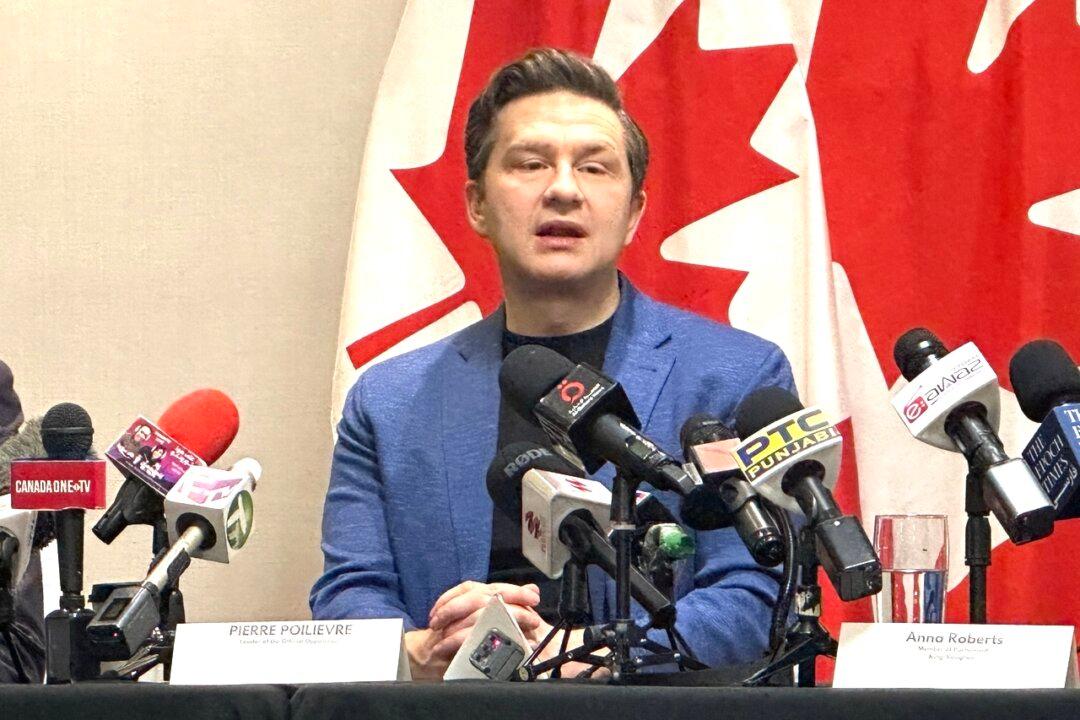Many new Canadians are concerned that under the Liberal government Canada is increasingly heading in the direction of the suppressive countries they escaped from, Conservative Leader Pierre Poilievre says.
Mr. Poilievre responded to a question during a March 22 Toronto press conference about immigrants escaping socialist and communist countries like China, searching for freedom in Canada but facing censorship here. The situation “is not an accident,” he said.





